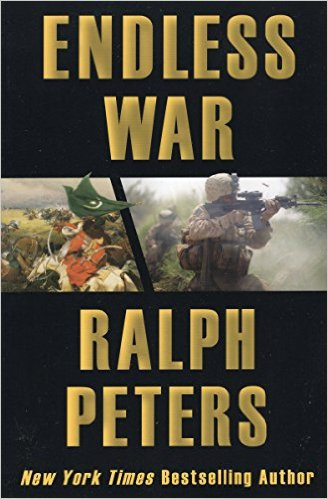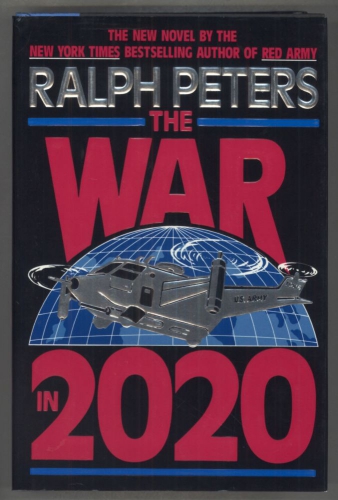
Le magazine texan Stratfor que nous citons, et auquel nous renvoyons, The Emerging Doctrine of the United States | Stratfor est un thermomètre de la température américaine et vise surtout à préparer l’opinion à distinguer entre les intérêts apparents et réels des Etats-Unis, à court et à long terme, ; il n’est donc pas destiné à un très vaste public, ni non plus formellement confidentiel, mais répond aux questions des élites déconcertées par le tapage médiatique « à usage de l’Américain moyen »
« Au cours de la fin de semaine dernière, des rumeurs ont commencé à émerger que l’opposition syrienne permettrait à des éléments du « régime d’Assad » (sic) à rester en Syrie et de participer au nouveau gouvernement. … Ce qui se passe en Syrie est importante pour une nouvelle doctrine étrangère émergente aux États-Unis – une doctrine selon laquelle les États-Unis ne prennent pas la responsabilité principale des événements, mais qui permet aux crises régionales de se déployer jusqu’à ce qu’un nouvel équilibre régional soit atteint. »
Le magazine simplifie volontairement, par souci de pédagogie la formule géopolitique U.S, en insistant sur ses « intérêts fondamentaux » », à savoir e que assure la base de la prospérité américaine : « cela se résume à l’atténuation des menaces contre les Etats-Unis par le contrôle des mers en empêchant l’émergence d’une puissance eurasienne qui serait en mesure de mobiliser des ressources à cette fin. Cette nouvelle doctrine consiste « à empêcher le développement d’une substantielle puissance nucléaire intercontinentale qui pourrait menacer les Etats-Unis, au cas où un pays ne serait pas découragé par la puissance américaine pour un motif quelconque. »
Dans cette perspective de maintien de supériorité « l’intérêt américain pour ce qui se passe dans le Pacifique est compréhensible .Mais même là les Etats-Unis, du moins pour l’instant, laissent les forces régionales s’engager dans une lutte qui n’a pas encore affecté l’équilibre régional de la puissance des Alliés américains, et les mandataires de cette puissance, comprenant les Philippines, le Viêt-Nam et le Japon ont été joué aux échec des les mers de cette région » –sous entendu contre la Chine, et l’on notera que le Viêt-Nam est dans la sphère politique antichinoise depuis sa dernière lutte frontalière, au mépris des sacrifices nationaux antérieurs !- »sans une imosition directe de la puissance navale américaine, même si une telle perspective », conclut Stratfor Global Intelligence, « semble possible » !
Viennent maintenant les leçons que les Américains auraient tiré des derniers engagements ! la campagne d’Irak et la résistance irakienne ont conduit au retrait des forces US et l’iran y aurait gagné une plus grande puissance et un sentiment de sécurité.
La campagne libyenne est présentée –avec une certaine hypocrisie- comme une initiative française et aurait été plus difficile, voire un échec, sans le soutien de l’aviation US.
La guerre syrienne, naturellement justifiée par l’influence croissante de l’Iran, et visant moins un Etat que ses relations étrangères avec l’Iran, la Russie et la Chine amène à préciser cette nouvelle politique ; le conflit est régional, les Alliés des Américains sont chargés de l’entretenir, même sans arriver à une solution radicale, et l’auteur Friedmann raconte qu’il a exposé ceci à ses interlocuteurs d’Asie centrale qui espéraient voir un engagement plus net des forces US !
Les conséquences en sont une poursuite indéfinie de la lutte intestine en Syrie et une pression continue sur l’Iran, dans laquelle l’arme économique prime sur tout affrontement utopique militaire. Ce qu’il importe est de bien lire la conclusion de l’analyse, qui montre que les Etats-Unis sont eux-mêmes dirigés par une force occulte qui veut l’affrontement général en négligeant les embrasements locaux.
Il s’agit de tester la force de la puissance émergente russo-chinoise !
« Cela a forcé la fois le régime syrien et les rebelles de reconnaître l’improbabilité d’une victoire militaire pure et simple. Tant le soutien de l’Iran au régime et les diverses sources de soutien à l’opposition syrienne se sont révélés indécis. Les rumeurs d’un compromis politique émergent en conséquence.
Dans le même temps, les États-Unis ne sont pas prêts à s’engager dans une guerre avec l’Iran, ni prêts à souscrire à l’attaque israélienne en l’accompagnant de leur soutien avec le soutien militaire . Les USA utilisent un moyen efficace de pression – des sanctions – qui semblent avoir eu un certain effet par la dépréciation rapide de la monnaie iranienne . Mais les Etats-Unis ne cherchent pas à résoudre la question iranienne, il n’est pas prêt à assumer la responsabilité principale, sauf si l’Iran devient une menace pour les intérêts fondamentaux des États-Unis. Il se contente de laisser les événements se dérouler et à n’agir que s’ il n’y a pas d’autre choix
Les Etats-Unis ne sont pas prêts à intervenir par la force militaire conventionnelle.
Cela ne signifie pas que les États-Unis se désengagent de la scène mondiale. Ils contrôlent les océans du monde et génèrent près d’un quart du PNB mondial du produit intérieur. Alors que le désengagement est impossible, l’ engagement contrôlé, basé sur une compréhension réaliste de l’intérêt national, est possible.
Cela va bouleverser le système international, en particulier celui des alliés américains. Il créera également des contraintes aux États-Unis à la fois de la gauche politique, qui se veut une politique étrangère humanitaire, et le droit politique, qui définit l’intérêt national au sens large. Mais les contraintes de la dernière décennie pèsent lourdement sur les Etats-Unis et vont donc changer la façon dont le monde fonctionne.
Le point important est que personne ne décide cette nouvelle doctrine. Il émerge de la réalité à laquelle les Etats-Unis sont confrontés. C’est la force des de doctrines qui se font jour. Elles se manifestent d’abord et sont annoncés quand tout le monde se rend compte que c’est comme ça que les choses fonctionnent. »
Une fois cette leçon de la Stratfor bien lue, une question se pose : qui dirige la politique US, l’intérêt national capitaliste-come partout, avec ses limites et ses confrontations ou une politique impériale qui prend les Etats-Unis pour écran et vise à non pas bâtir un ordre, mais régler un désordre général, la maintenir par sa théorie du chaos minimum, abattre un adversaire fort, plutôt qu’imposer la puissance qu’elle n’a pas ? A cet égard, une alliance avec les USA est un chèque en blanc donné à un inconnu !
Pierre Dortiguier




 The most interesting thing about the point of view of the military expert is that it directly intersects with Alexandr Dugin’s comprehension of contemporary American hegemony as “Chaord” (Chaos+order) hegemony. Moreover, recent developments in the Arab world are directly related to these concepts, and Peters is exactly in line with his ideas about US policy in the region and the world at large. The article "Constant conflict", which most clearly reflecting Peters’ approach to analysis of modern geopolitics, came in 1997 in the "Options" military magazine.
The most interesting thing about the point of view of the military expert is that it directly intersects with Alexandr Dugin’s comprehension of contemporary American hegemony as “Chaord” (Chaos+order) hegemony. Moreover, recent developments in the Arab world are directly related to these concepts, and Peters is exactly in line with his ideas about US policy in the region and the world at large. The article "Constant conflict", which most clearly reflecting Peters’ approach to analysis of modern geopolitics, came in 1997 in the "Options" military magazine. According to the American strategist, one of the defining conflicts of the future will be a conflict between information masters and its victims. US’ main weapon here is American mass culture, brands, followed by, should it be necessary, military intervention.
According to the American strategist, one of the defining conflicts of the future will be a conflict between information masters and its victims. US’ main weapon here is American mass culture, brands, followed by, should it be necessary, military intervention.

 del.icio.us
del.icio.us
 Digg
Digg
Ex: http://mediabenews.wordpress.com/